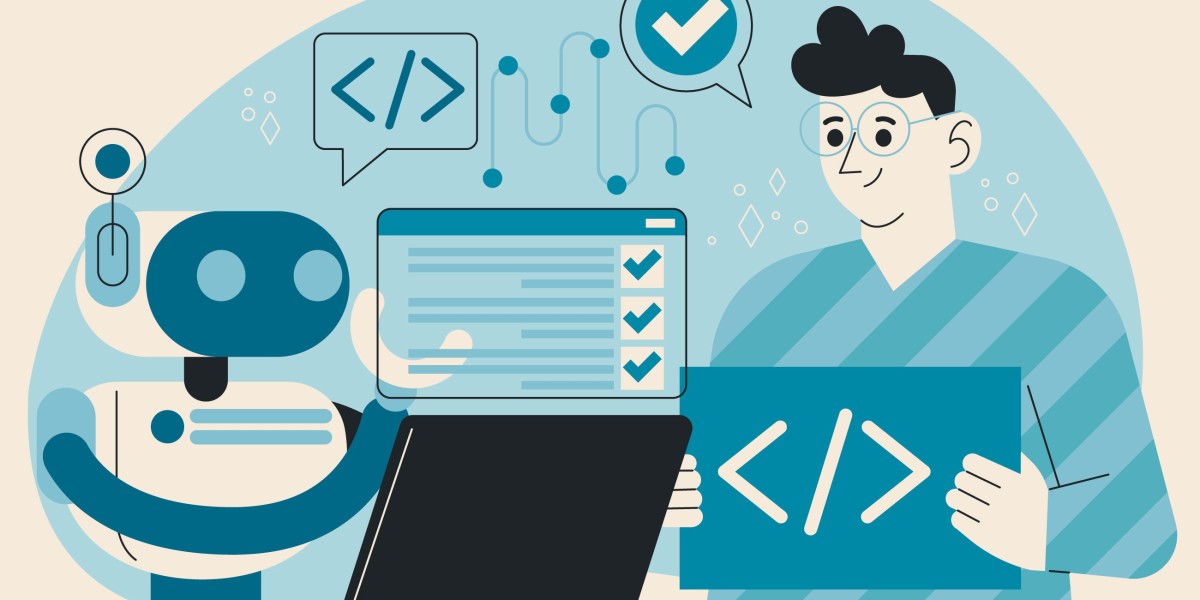Artificial Intelligence (AI) has rapidly transformed various industries, and software development is no exception. As AI technologies continue to advance, they offer unprecedented opportunities to revolutionize the way software is developed, deployed, and maintained. In this article, we will explore some of the most promising trends and innovations that are shaping the future of AI in software development. From automated code generation to explainable AI, these advancements have the potential to greatly enhance productivity, efficiency, and the overall user experience.
Future of AI in Software Development
Automated Code Generation:
One of the most exciting developments in AI for software development is automated code generation. AI-powered tools and frameworks that can analyze requirements, design specifications, and existing codebases to generate functional code are emerging. By automating repetitive coding tasks, developers can focus on higher-level design and innovation. This trend not only speeds up development but also reduces human errors. While automated code generation is still in its early stages, advancements in natural language processing and machine learning are expected to propel this area further, leading to more sophisticated and accurate code generation capabilities.
AI-Driven Testing and Debugging:
AI is playing a transformative role in software testing and debugging processes. Machine learning algorithms can analyze vast amounts of data and identify patterns, enabling more efficient bug detection and resolution. AI-powered testing tools can automatically generate test cases, optimize test coverage, and detect anomalies in code behavior. Moreover, AI-based anomaly detection can monitor software systems in real-time, identifying and addressing potential issues proactively. As AI advances, we can expect smarter and more autonomous testing and debugging processes, reducing development cycles and improving software quality.
Explainable AI:
Explainability is a critical aspect of AI adoption in software development solutions. As AI models become more complex, understanding the reasoning behind their decisions becomes increasingly important. Explainable AI (XAI) focuses on making AI algorithms transparent and interpretable, enabling developers to understand how and why certain decisions are made. XAI not only fosters trust in AI systems but also helps in addressing regulatory and ethical concerns. The development of XAI techniques, such as rule-based systems, model visualization, and interpretability frameworks, will continue to be a key research area in the future, ensuring AI systems can be effectively used and understood by developers and end-users.
AI-Assisted Development Environments:
AI-assisted development environments are revolutionizing the way developers write, test, and debug code. These intelligent tools can offer code suggestions, autocomplete functionality, and detect potential errors in real time. AI can analyze vast code repositories and provide developers with best practices, design patterns, and coding style recommendations. By leveraging machine learning algorithms, these environments adapt to developers' preferences and coding habits, boosting productivity and reducing cognitive load. With the integration of natural language processing and deep learning, AI-assisted development environments will continue to evolve, enabling even more seamless and efficient coding experiences.
AI-Powered Software Analytics:
AI-driven software analytics allows developers to gain valuable insights from vast software-related data. By analyzing code repositories, bug reports, user feedback, and performance metrics, AI algorithms can identify patterns, trends, and potential areas for improvement. This data-driven approach can help developers make informed decisions, optimize software architectures, predict defects, and enhance user experiences. Moreover, AI-powered analytics can assist in software maintenance, predicting code maintenance needs, and recommending appropriate updates or refactoring. As AI techniques advance, software analytics will become an indispensable tool for software developers, enabling data-driven decision-making throughout the software development lifecycle.
Conclusion:
The future of AI in software development services holds immense potential for innovation and efficiency. With automated code generation, AI-driven testing and debugging, explainable AI, AI-assisted development environments, and AI-powered software analytics, developers can harness the power of AI to create more robust, intelligent, and user-centric software applications. As AI technologies continue to advance, the possibilities for leveraging AI in software development are vast, promising a future of accelerated development cycles, improved software quality, and enhanced user experiences.








